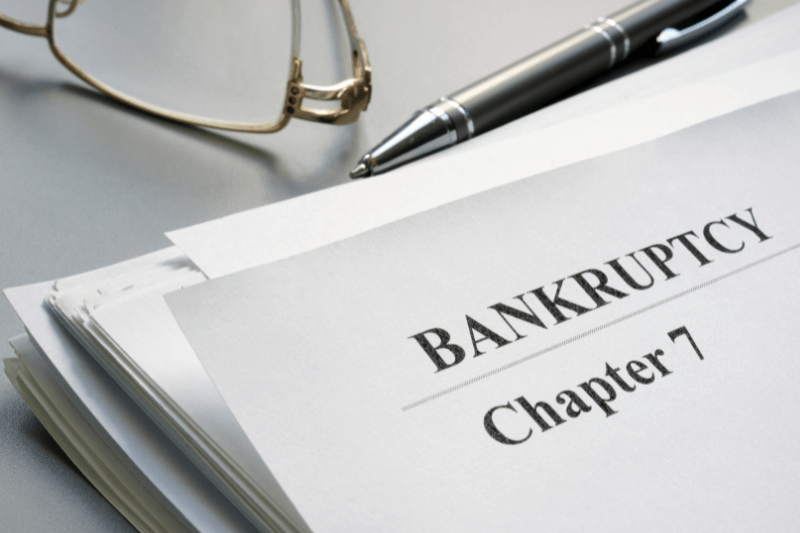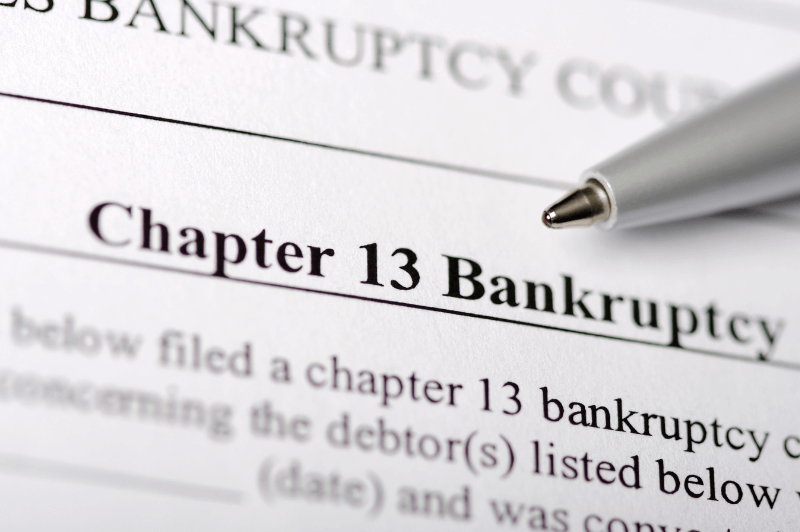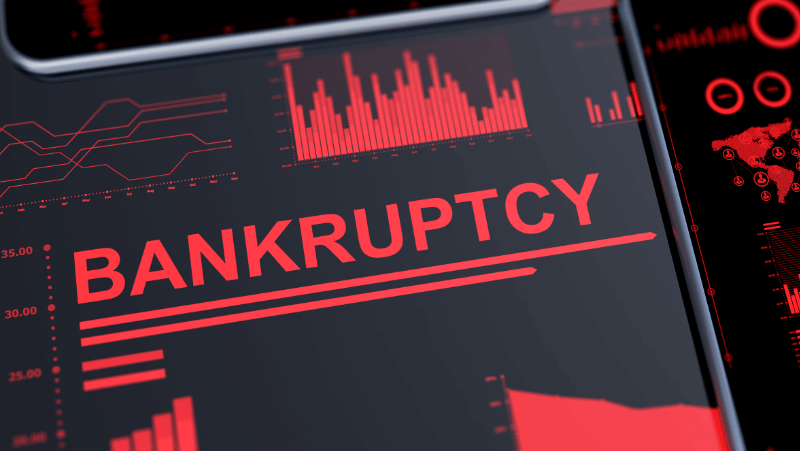
Navigating through a crisis can be quite a challenge and the idea of selling your home during a bankruptcy might feel overwhelming. However, it’s crucial to know that you’re not alone in this journey. With the right support and legal advice, you can take charge of your situation and move towards a more secure financial future.
This detailed guide is tailored for homeowners in Texas who are thinking about selling their home while dealing with bankruptcy. We will explore the ins and outs of the bankruptcy process, unravel complexities, and equip you with the tools to confidently navigate toward the closing day.
Whether you’re facing Chapter 7 or Chapter 13 bankruptcy there’s no need to worry. We’ll provide insights on exemptions, procedures in bankruptcy court the role of your bankruptcy trustee, and much more. Let’s embark on this journey together; remember to stay calm and make rational decisions!
Everything You Need to Know About Selling Your House in Bankruptcy
When selling your home during bankruptcy proceedings it’s crucial to understand its status within the bankruptcy estate. If it is part of the estate the bankruptcy trustee holds authority, over it. To proceed with selling it obtaining court approval is necessary.
To get court approval you need to file the motions and present evidence showing that selling the property benefits everyone involved. Once you have court approval you can. List the property with a real estate agent or sell it to a cash buyer.
During the selling process, you may receive offers. Feel tempted to accept the bid right away. However, keep in mind that the highest offer may not always be the choice. It’s important to consider factors, like the buyer’s financing and their closing timeline. Your bankruptcy lawyer can assist you in navigating these considerations.
When it comes to using the sale proceeds there are guidelines set by the bankruptcy code that dictate how these funds should be distributed. Typically secured debts like mortgage payments take priority followed by bankruptcy expenses, unsecured debts, and any remaining funds going back to you as the homeowner.
Being in bankruptcy doesn’t necessarily prevent you from selling your home. It’s advisable to seek guidance from a firm or bankruptcy attorney who can offer consultation tailored to your specific needs. Selling a house during bankruptcy involves navigating through a web of regulations and exceptions.
It’s important to understand these not just to follow the rules but to make sure you’re making the most of your profits while keeping your risks low.
When it comes to selling your house remember that it’s a decision. It’s completely fine to take your time gathering all the information and choosing what’s best for you. Don’t forget you’re not alone in this journey. There are resources and people there who are ready to support you every step of the way.
About Chapter 7 Bankruptcy
Chapter 7 bankruptcy, also known as ‘liquidation bankruptcy’ is a process that offers a start for individuals burdened with debt. In this type of bankruptcy, a trustee appointed by the court may sell assets to repay creditors.
For homeowners thinking about filing for Chapter 7 bankruptcy, understanding the homestead exemption is crucial. This provision can safeguard some or all of your home equity. If your home equity is below the Texas homestead exemption limit there’s a chance you can keep your house.
However, this doesn’t automatically protect you from claims made by your mortgage lender. You are required to continue making your mortgage payments even if you file for Chapter 7 bankruptcy. If you struggle to meet your obligations the lender may start foreclosure proceedings.
It’s essential to seek advice from your bankruptcy lawyer or a legal firm that provides consultations to fully grasp the implications and legal aspects of selling your home while going through Chapter 7 bankruptcy. They can help evaluate if it’s the decision for you and assist you in securing court approval for the sale addressing any property liens and understanding how it might impact your bankruptcy case.
Remember, declaring bankruptcy doesn’t signify the end; it presents an opportunity to regain control and work towards a financial future. Keep your expectations realistic, stay patient, and always seek counsel when necessary.

About Chapter 13 Bankruptcy
Chapter 13 bankruptcy, known as a “wage earners plan ” offers individuals an approach to managing debt. Of liquidating assets Chapter 13 bankruptcy allows you to restructure debts into a repayment plan typically spanning three to five years.
This could be a choice for homeowners with income facing temporary financial difficulties. If you’re falling behind on mortgage payments, opting for a Chapter 13 bankruptcy plan could help you catch up and prevent foreclosure. You can include the payments in your repayment plan. Spread them out over the plan’s duration. Remember to keep up with your mortgage payments during this period.
Similar to a Chapter 7 scenario involving a bankruptcy trustee is necessary in a Chapter 13 case to manage and oversee the bankruptcy proceedings. The trustee will assess your proposed Chapter 13 plan. Allocate payments to your creditors.
Navigating through a Chapter 13 bankruptcy can be intricate involving filing motions meeting obligations under the repayment plan and maintaining communication with your bankruptcy lawyer. With guidance, you can ensure compliance with the court’s regulations safeguarding your home and paving the way towards stability.
Chapter 13 bankruptcy presents its mix of challenges and advantages like any process. It’s crucial to consider these aspects with guidance, from a bankruptcy attorney before finalizing your decision.
When dealing with bankruptcy the main goal is not to penalize but to pave the way for recovery. There are variations between Chapter 7 and Chapter 13 Bankruptcy. Chapter 7 known as “liquidation ” involves selling off the debtor’s assets to repay creditors. On the other hand, Chapter 13 focuses on restructuring debt repayment over a year while allowing the debtor to retain their belongings, such as their home. Both chapters are subject to bankruptcy laws and court approval.
Deciding which path to take should involve seeking guidance, from a bankruptcy lawyer, who can offer advice tailored to your financial circumstances. While the prospect of filing for bankruptcy may feel overwhelming it serves as a tool meant to provide relief from debt and a chance for a beginning.
Differences Between Chapter 7 and Chapter 13 Bankruptcy
Chapter 7 and Chapter 13 Bankruptcy, while both forms of financial relief, differ significantly in their processes and outcomes.
Chapter 7 bankruptcy, often known as “liquidation ” involves selling the debtor’s assets that are not protected by exemptions by a trustee. The money from the sale is then used to repay creditors. In some cases, people who file for Chapter 7 bankruptcy can get rid of most of their debts (such as credit card debt) by the end of the bankruptcy process. It’s important to note that in Chapter 7 there is a risk of losing your home if it’s not shielded by an exemption and has equity.
On the side Chapter 13 bankruptcy focuses more on reorganizing finances. It lets the debtor come up with a plan to pay off their debts over three to five years. During this period the debtor can hold onto their assets, including their home, as long as they keep up with their mortgage payments and those outlined in the Chapter 13 plan.
Both types are guided by bankruptcy laws and regulations. Need approval from a court. Choosing which one to go for should be done with help, from a bankruptcy lawyer who can offer advice tailored to your financial circumstances.
The concept of declaring bankruptcy might feel overwhelming. It’s important to keep in mind that it’s meant to provide relief from debt and a chance, for a beginning.

Can You Sell Your House During Bankruptcy
Yes, you have the option to sell your house while undergoing bankruptcy proceedings; however, the process is not as simple as a sale. Whether you are going through Chapter 7 or Chapter 13 bankruptcy it’s essential to understand that your property becomes part of the bankruptcy estate. This implies that you cannot sell it independently without approval from the bankruptcy court.
If you are in Chapter 7 bankruptcy you will need to request permission from the court before selling your house. You must demonstrate that there is equity in the property after accounting for the sale price, closing expenses, and mortgage balance to provide some compensation to creditors. The bankruptcy trustee will also have involvement since they oversee your assets.
In Chapter 13 bankruptcy scenarios in addition to court authorization, you must show that selling the house aligns with your Chapter 13 repayment plan.
One great benefit is that you can usually keep your home as long as you make the agreed payments, on time. In both scenarios, you must provide information about the selling price, any connections with the buyer, and how the money will be divided. However, it’s important to note that navigating these processes can be tricky. It is recommended to establish a relationship, with a law firm or debt relief agency. They can assist you throughout the procedure clarify how it may affect your bankruptcy discharge and ensure everything is done correctly. Another option is to explore cash home buyers in Texas.
Keep in mind that the aim isn’t to sell your house in Texas but to do so in a way that aligns with your best interests.
How to Sell Your House During Bankruptcy
There are several approaches when deciding to sell your house during bankruptcy.
1. Traditional Sale: This is the method of selling a property involving hiring a real estate agent determining the market value of your house and waiting for buyers.
While this approach might require time and incur expenses it has the potential to yield a higher profit if your property is, in high demand. Just keep in mind to factor in realtor fees, which typically range from 5 to 6% of your home’s selling price.
2. Short Sale: Another option is a short sale, which could be suitable if you owe more on your home than its market value. This involves selling the property for less than what you owe on the mortgage. However, you must obtain approval from your lender for a sale. It may impact your credit score.
3. Selling to a Cash Buyer: Alternatively selling to a cash buyer can be a way to offload your house. Trusted cash home buyers like ‘We Buy Houses Fast‘ in Texas provide cash offers without any obligations and can close the deal promptly. This route can be advantageous if you need to sell your Texas property fast. Cash buyers often purchase homes in their current condition, or as-is, eliminating the need for repair costs and avoiding hefty realtor commissions since they are not agents.
4. Auction: Lastly an auction is another option where you sell your home, to the bidder. While auctions can speed up the selling process they often result in sale prices.
No matter which route you take it’s essential to stay in touch with your bankruptcy lawyer. They can offer advice to help you grasp the consequences of filing for bankruptcy and work on your behalf to ensure that any sales agreement fits with your Chapter 13 plan and bankruptcy discharge.
In summary, selling a house while going through bankruptcy may seem complex. It’s not impossible. By knowing the selling options and collaborating with a professional you can maneuver through bankruptcy towards a financial beginning.
Wrapping Things Up
Selling your house during bankruptcy isn’t easy, though it’s definitely manageable. With the strategy and support you can take charge of your situation. Progress confidently. Remember, filing for bankruptcy doesn’t signify the end; instead, it’s an opportunity to reset your circumstances. Whether you choose a sale work with a cash buyer or consider an auction the aim is to secure funds to meet your obligations and establish a more stable financial future. Your bankruptcy attorney will play a role in this process by guiding you through complexities and ensuring that your choices align, with your Chapter 13 plan and bankruptcy discharge.
Just keep in mind that you’re not, on your own in this process; there are reputable cash home buyers in Texas such as ‘We Buy Houses Fast’ who can give you a risk-free cash offer without any obligations making it easier for you to sell your house quickly and effectively.

